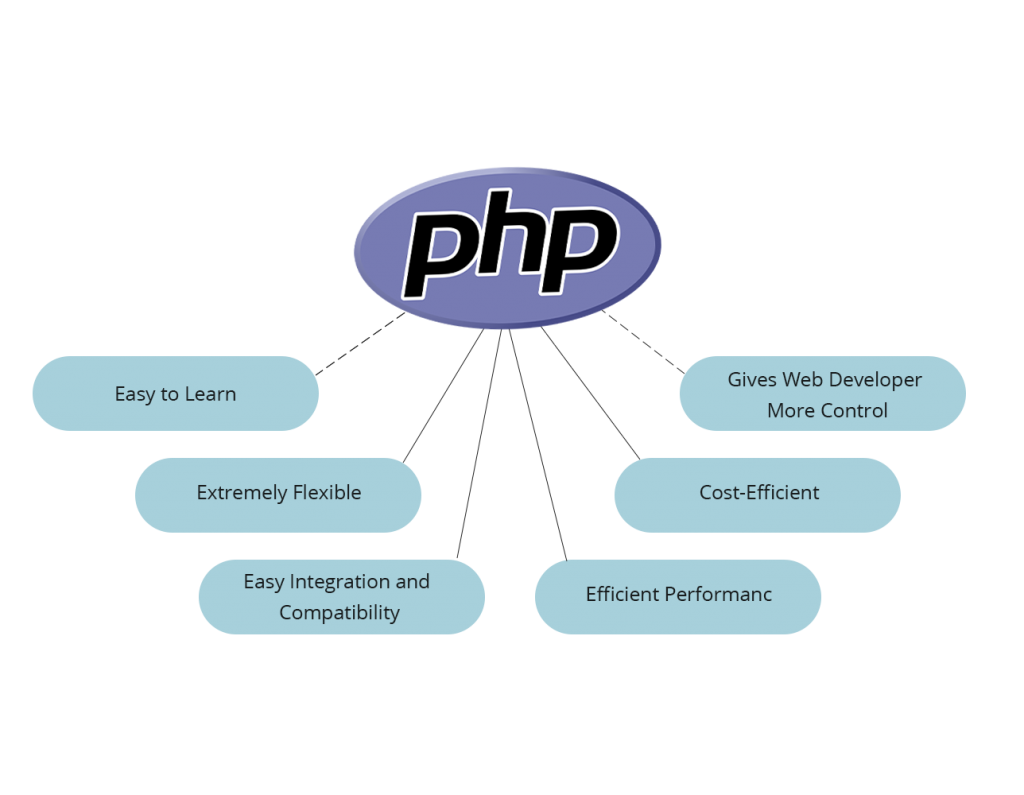
PHP has several strengths that make it a popular choice for web development:
- Ease of Learning and Use: PHP is relatively easy to learn for beginners, especially for those familiar with HTML. It has a simple syntax and extensive documentation, which makes getting started quick and straightforward.
- Open Source: PHP is free to use, which lowers the barrier to entry for developers and businesses. Its open-source nature also means there is a large community of developers contributing to its growth and support.
- Cross-Platform Compatibility: PHP is platform-independent and works on various operating systems, including Windows, Linux, and macOS. It also supports multiple web servers, like Apache and Nginx.
- Large Ecosystem and Frameworks: PHP has a wide range of frameworks, like Laravel, Symfony, and CodeIgniter, which help streamline development by providing ready-to-use components and robust features for building scalable applications.
- Database Integration: PHP integrates easily with databases, especially MySQL, making it a strong option for dynamic websites and web applications that rely on data storage and retrieval.
- Speed and Performance: PHP has improved significantly in terms of performance, especially with the introduction of PHP 7.x and later versions. It’s optimized for fast execution, which is important for large-scale web applications.
- Wide Adoption and Support: PHP powers a large number of websites and content management systems (like WordPress, Drupal, and Joomla). This popularity ensures strong community support, a wealth of tutorials, and a broad pool of PHP developers.
- Rich Libraries and Tools: PHP has many built-in functions and libraries that help with common web development tasks, such as handling forms, sending emails, and file uploads, which can reduce the time spent on development.
- Security Features: While PHP can be vulnerable if not properly configured, it offers many built-in security features (e.g., data sanitization functions, password hashing) to protect against common threats like SQL injection and cross-site scripting (XSS).
- Scalability: PHP can handle large-scale projects with the right architecture and optimization. When combined with the right technologies, such as caching mechanisms (e.g., Memcached or Redis) and a robust database layer, PHP can scale well.
These strengths make PHP a solid choice for building websites, from small blogs to complex web applications.




